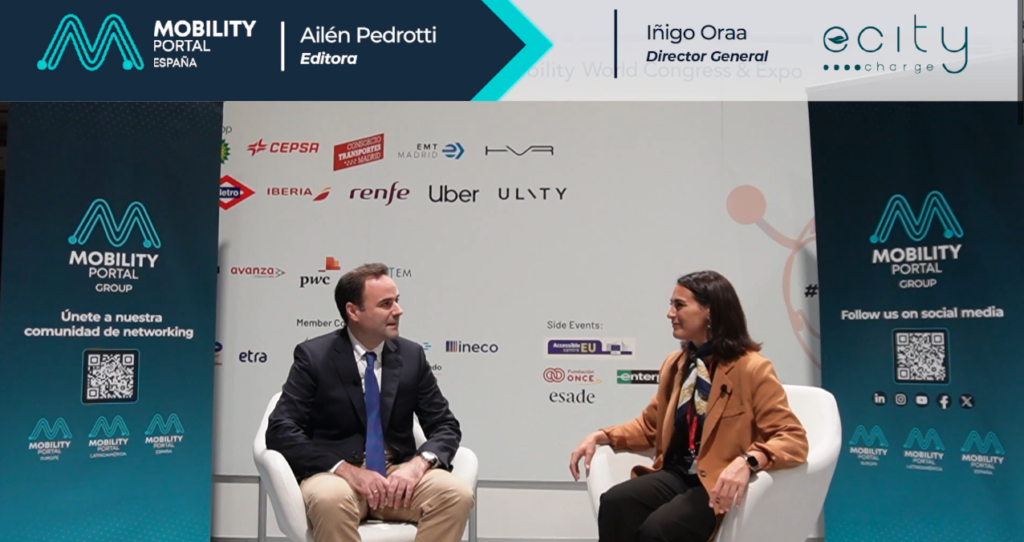“With great regret, I wanted to communicate that, after several years of activity, specifically since the year 2021, we have decided to cease our operations as of yesterday,” announced eCity Charge last Wednesday.
Through a letter to the eMobility sector, its CEO, Iñigo Oraa, shares the news of the closure of operations after three years of hard work.
The company announced its expansion beyond the Community of Madrid at the beginning of 2023.
Some of the locations reached included Andalusia, Castilla-La Mancha, Castilla y León, Catalonia, the Basque Country, and Navarre.
Home and communal garage installations were the foundation of their operations, and with capital injections, they aspired to undertake much larger eMobility projects.
Reflecting on the milestones that marked their trajectory in the national electromobility market, Oraa offers advice and acknowledgments to colleagues.
Here, Mobility Portal Group shares the complete text:
“With great regret, I wanted to communicate that, after several years of activity, specifically since 2021, we have decided to cease our operations as of yesterday.
It has been more than 3 years of continuous learning with ups and downs, but if there’s one thing to highlight, it’s the constant presence of the customer in our activities and how they have guided and determined our approach.
eCity Charge began its activity as an installation company for electric and plug-in hybrid vehicle charging points, specializing in advice, installation, and maintenance, in 2021.
Its activity started in collaboration with a national manufacturer through a contract for the installation of their equipment in a collaborative environment.
It had its beginnings in the Autonomous Community of Madrid, gradually expanding its activity throughout the peninsula.
In this journey, often taken blindly but many times with valuable advice from the company’s investor team, we have learned a lot about approaching customers and meeting their needs, understanding the work teams and specialists in various areas of the company, and staying at the forefront of technical solutions.
Our focus has been on alternating current charging equipment considered slow and semi-fast, mostly single-phase 7.4 kilowatts for home charging but also in corporate and administrative settings with three-phase chargers of 22 kilowatts and 44 kilowatts.
Providing solutions for power optimization to minimize contracted power and integration into photovoltaic generation systems, with or without storage systems, has been crucial.
One of the greatest satisfactions has been seeing the number of customers who have contacted us based on recommendations from acquaintances and messages about our good work.
However, it’s also worth noting the continuous learning we have developed along the way: constant search and knowledge of new work teams (installers, engineers, advertisers) and ongoing conversations with suppliers that have helped us better understand the business (despite the final outcome we’ve had) as well as staying in touch with the latest technologies, electrical equipment (‘we work with all brands’), and regulations in a continuously innovative sector.
I trust that the skill of each team member will help them continue their path, and the well-deserved letters of recommendation may provide some support in their new endeavors, although I sincerely believe that these are perfectly dispensable.”
eCity Charge and its perspective on MOVES III
In November, the uncertainty surrounding the continuity of Plan MOVES III ended with the announcement of the extension of subsidies for seven more months.
The government, with at least 290 million euros remaining, decided to breathe new life into the grants, but without making significant changes in their operation.
Although the announcement was made with enthusiasm, the eMobility sector continues to insist on the need to make the processes of refunding up to 7,000 euros promised for the purchase of an electric car more efficient.

He puts forward an “A, B, C” to outline a package that can motivate and convince those who are still undecided:
“It is essential to simplify the entire process of accessing MOVES. There are usually several phases to obtain them, and the payment deadlines have a minimum of six months.”
From his perspective, simplification is the first step.
Throughout their experience, they have seen how many users consider taking out a loan to purchase an electric vehicle.
The lack of a discount makes many doubt the initial investment, not to mention the expense required for the installation of a charging point.
“Anything that can help advance or discount the promised amount from the final purchase price will contribute to the decision of the undecided,” suggests Oraa.
Just to provide context and figures, Plan MOVES still has a budget of 344.59 million euros.
This includes unallocated funds and the remainder that autonomous communities still have unreserved.
Of the total amounts mentioned, which represent 28.71 per cent of the initial 1.2 billion euros of the program, there is at least 265.58 million pending distribution among the regions.
But that’s not all. 79.01 are in regional coffers but have not yet been reserved by interested parties.
Taking stock, only 855.41 million euros of MOVES have been granted to advance eMobility transition in Spain.
This is why reforms seem necessary and even urgent, not only for the private sector but also for users themselves, to be able to access the pending funds.
In an exclusive interview series with Mobility Portal España during the Global Mobility Call in Madrid, the executive does not overlook the value of tax deductions.
These play an important and motivating role in this whole scenario: “The subsidies given today are taxable, so exempting electromobility from taxes would be ideal.”
So far, only applications of this type have been approved in the personal income tax (IRPF).
But these are valid in case the purchase is for a new vehicle.
So, if used for an economic activity, at the time of purchase or later, the right to deduction will be lost.
And not only that, the charging infrastructure is not covered by this aid.
To stay informed about electromobility news in Spain, visit Mobility Portal España








